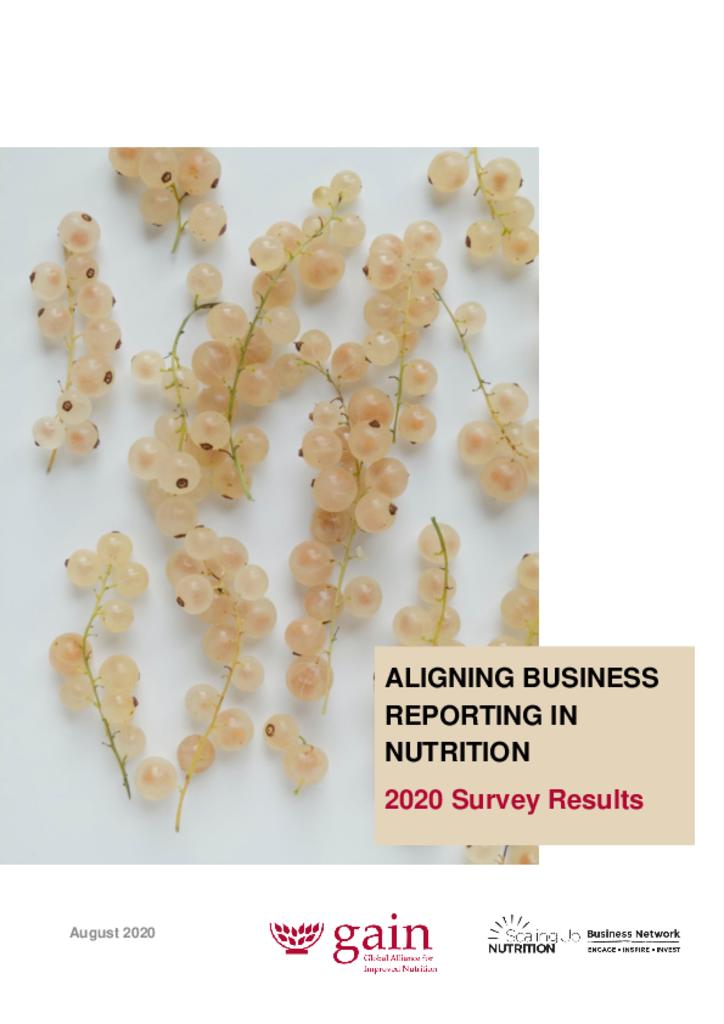In 2021, two major Summits will take place to fight malnutrition: the Nutrition for Growth Summit and the United Nations Food System Summit. These Summits are an opportunity to set ambitious targets regarding the private sector contribution to a better access to safe nutritious food. Ahead of these key events, the Global Alliance for Improved Nutrition (GAIN)/SUN Business Network (SBN) are working on understanding and strengthening current business accountability in nutrition by supporting better alignment of the reporting landscape.
Being able to track, measure, and compare the impact of businesses on making safe and nutritious foods available is central to improve business accountability in nutrition. GAIN/SBN launched a survey in May 2020 to identify consensus around the use of existing reporting tools to assess business impact in seven key categories: (re)formulation, marketing to children, labelling, employee health and wellbeing, food safety, food loss and waste and food affordability.
The survey included a limited number of pre-selected existing reporting tools for each category and was shared with businesses, business associations, international organisations, non-government organisations (NGOs), academia and accountability mechanisms representatives. Twenty-nine respondents provided their feedback including twenty-one businesses/business associations, four international organisations/NGOs/academia and four accountability mechanisms.
The respondents found the following existing reporting tools as being the most relevant to report business impact on:
- product (re)formulation: the Health Star Rating System.
- marketing to children: the Core Principles of the Children’s Food and Beverage Advertising Initiatives.
- food labelling: relevant Codex Alimentarius Standards on Labelling.
- employee health and wellbeing (with a focus on workforce nutrition): the Workforce Nutrition Alliance Scorecard.
The report provides the detailed results for each of these categories including the results distribution between businesses/business associations and international organisations/NGOs/academia /accountability mechanisms.
For three of the categories, GAIN/SBN had preselected only one existing reporting tool/methodology. The two pre-selected tools to assess business impact on food safety and food loss and waste were singled out as their design and use required multi-stakeholder consensus. On food affordability, very little has been done yet to assess business impact in a consistent manner, considering the importance of this topic for better access to nutrition GAIN/SBN suggested a ‘simple’ indicator to assess interest around business reporting on food affordability based on discussions with academia representatives and a literature review.
- The Global Food Safety Initiative (GFSI) benchmarking requirements was scored very relevant/relevant by 92% of the respondents to this question.
- The Food Loss and Waste Accounting and Reporting Standard was scored very relevant/relevant by 91% of the respondents to this question.
- The Sales Weighted Price Index (prices weighted against nutrition content) was scored very relevant/relevant by 63% of the respondents to this question.
